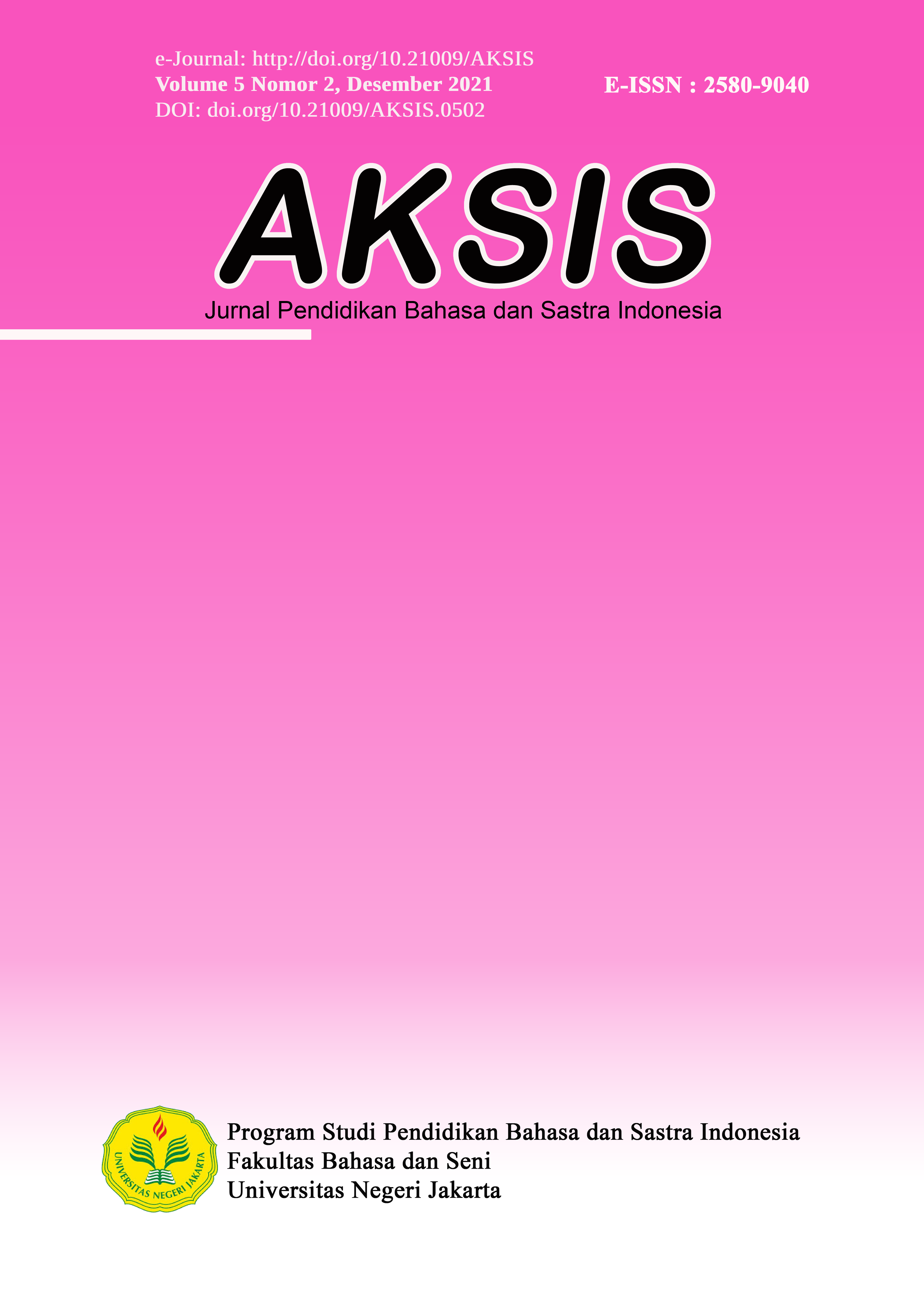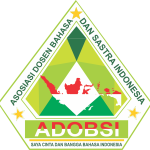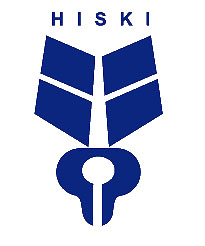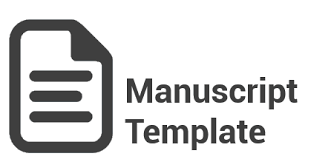Integrated Language Learning in Elementary School
DOI:
https://doi.org/10.21009/AKSIS.050215Kata Kunci:
language teaching, grammar, compositionAbstrak
Language is not only from words, but also meaning behind those words. In discourse, there are two components: intra linguistics and extra linguistics. Intra-linguistic component means discourse build from word to word, phrase to phrase, sentences to sentences, paragraph to paragraph at the end it becomes discourse. Extra linguistics competences have some components, settings, purposes, and others component when the text is composed. I will explain how to teach discourse in teaching reading. First, teacher gives questions to open the class; the question should open students' background knowledge about subject at that day. At that stage, teachers should try to raise students' curiosity at that topic. Teachers should ask students opinion about the topic. After that stage, the teacher gives students an up-to-date material close to students' real life. In this stage, students read it by scanning and skimming. The next step, teacher asks students to analyze structure (grammar), vocabulary, and how author developing ideas their composition.
Referensi
Ağlarcı, O., Sarıçayır, H., & Şahin, M. (2016). Nature of science instruction to turkish prospective chemistry teachers: The effect of explicit-reflective approach. Cogent Education, 3(1). https://doi.org/10.1080/2331186X.2016.1213350
Beglar, D., and Nemoto, T. (2014). Developing Likert-scale questionnaires. JALT2013 Conference Proceedings, 1–8.
Hacieminoglu, E. (2014). In-service Teachers’ Perceptions Regarding their Practices Related to Integrating Nature of Science: Case Study. Procedia - Social and Behavioral Sciences, 116(1988), 1268–1273. https://doi.org/10.1016/j.sbspro.2014.01.381
Hacıeminoğlu, E., Ertepınar, H., Yılmaz-Tüzün, Ö., and Çakır, H. (2015). Students and school characteristics related to elementary school students’ views of the nature of science. Education 3-13, 43(6), 700–721. https://doi.org/10.1080/03004279.2013.865655
Karisan, D., & Zeidler, D. L. (2017). Contextualization of Nature of Science Within the Socioscientific Issues Framework: A Review of Research. International Journal of Education in Mathematics, Science and Technology, November, 139–152.https://doi.org/ 10.18404/ijemst.270186
Khishfe, R. (2012). Nature of Science and Decision-Making. International Journal of Science Education, 34(1), 67–100. https://doi.org/10.1080/09500693.2011.559490
Khishfe, R., & Lederman, N. (2006). Teaching nature of science within a controversial topic: Integrated versus nonintegrated. Journal of Research in Science Teaching, 43(4), 395–418. https://doi.org/10.1002/tea.20137
Lederman, N. G., Abd-El-Khalick, F., Bell, R. L., and Schwartz, R. S. (2002). Views of Nature of Science Questionnaire: Toward Valid and Meaningful Assessment of Learners’ Conceptions of Nature of Science. Journal of Research in Science Teaching, 39(6), 497–521. https://doi.org/10.1002/tea.10034
Liang, L. L., Chen, S., Chen, X., Kaya, O. N., Adams, A. D., Macklin, M., and Ebenezer, J. (2008). Assessing preservice elementary teachers’ views on the nature of scientific knowledge: A dual-response instrument. Asia-Pacific Forum on Science Learning and Teaching, 9(1), 1–20.
Listiani, & Kusuma, A. E. (2017). View of Nature of Science (VNOS) Form B: An Instrument for Knowing the Understanding of the Concept of Science Nature of Teacher Candidates at the University of Borneo Tarakan. Jurnal Pendidikan Biologi Indoneisa, 3(1), 45–54. (in Indonesia)
Sadler, T. D., Chambers, F. W., and Zeidler, D. L. (2004). Student conceptualizations of the nature of science in response to a socioscientific issue. International Journal of Science Education, 26(4), 387–409. https://doi.org/10.1080/0950069032000119456
Subiantoro, A. W., Ariyanti, N. A.,& Sulistyo. (2013). Pembelajaran materi ekosistem dengan socio-scientific issues dan pengaruhnya terhadap reflective judgment siswa. Jurnal Pendidikan IPA Indonesia, 2(1), 41–47. https://journal.unnes.ac.id/nju/index.php/jpii/article/view/2508
Sumfleth, E., & Jorde, D. (2001). Research in Science Education - Past, Present, and Future. Research in Science Education - Past, Present, and Future, June 2014. https://doi.org/10.1007/0-306-47639-8
Sumranwanich, W., & Yuenyong, C. (2014). Graduate Students’ Concepts of Nature of Science (NOS) and Attitudes toward Teaching NOS. Procedia - Social and Behavioral Sciences, 116, 2443–2452. https://doi.org/10.1016/j.sbspro.2014.01.589
Wang, H. H., Hong, Z. R., Liu, S. C., & Lin, H. S. (2018). The impact of socio-scientific issue discussions on student environmentalism. Eurasia Journal of Mathematics, Science and Technology Education, 14(12). https://doi.org/10.29333/ejmste/95134
Zeidler, D. L., & Nichols, B. H. (2009). Socioscientific issues: Theory and practice. Journal of Elementary Science Education, 21(2), 49–58. https://doi.org/10.1007/bf03173684
Zeidler, D. L., Walker, K. A., Ackett, W. A., and Simmons, M. L. (2002). angled up in views: Beliefs in the nature of science and responses to socioscientific dilemmas. Science Education, 86(3), 343–367. https://doi.org/10.1002/sce.10025






